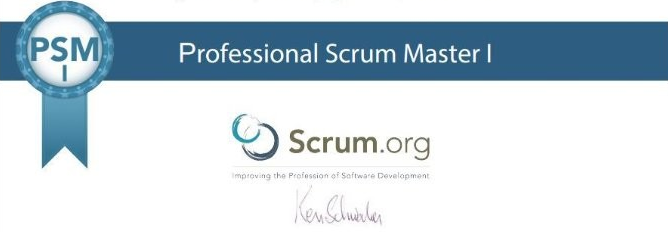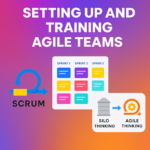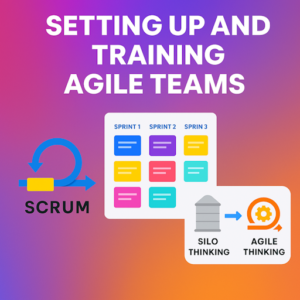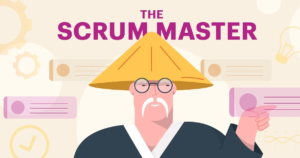
This month marks the second month after I attended training and certified in PSM1.
Hence, just wanted to share some of the knowledge which I have learnt from the training and hope this is of use to anyone preparing for the certification examination.

- Three roles, five events, and three artifacts (3-5-3)
- Scrum team – product owner, scrum master, developers (no stakeholders)
- Role 1 : Product owner – owns the backlogSprint backlog owner (and work to complete in sprint)
- Role 2 : Scrum master – facilitate decision making, remove impediments
- Role 3 : Developers – rest of team (other than PO and SM, all others considered developer e.g. tester, BA etc)
- Team model – creativity, quality, productivity, flexibility (CQPF)
- Scrum values – CCOFR (Commitment, Courage, Openness, Flexibility, Respect)
- Scrum events –
- the sprint,
- daily scrum (15 mins),
- sprint planning (8 hours or less, can involve external parties to clarify on technical or business aspects),
- sprint review (4 hours, can involve stakeholders),
- sprint retrospective (3 hours)
- Scrum artifacts
- product backlog
- sprint backlog
- increment
- Sprint goal (during sprint planning) and DoD (during sprint retro) – crafted by scrum team



Mock exams
1. https://mlapshin.com/index.php/scrum-quizzes/sm-real-mode/
2. https://www.scrum.org/open-assessments/scrum-open
Sharing experience from others on prepping as below :
- Study Scrum Guide 2-3 times
2. Repeat below
– Do Open Assessment until 100% each time (similar questions did show up)
– Do Mikhail’s many times. Study the notes under the question. (similar questions did show up)
– Do Volkerdon free test few times (find it very helpful)
– Do thescrummaster free test, do internet80 free test just 1-2 times
3. During the test
– Do as fast as possible for the questions you have seen.
– Bookmark the unsure questions.
4. Read the question carefully. e.g. Choose the best, choose best 2, choose best 3, which one is untrue.
Refer to below for more details :
References
Official Scrum.org guide
PDF – https://scrumguides.org/docs/scrumguide/v2020/2020-Scrum-Guide-US.pdf#page=11&zoom=100,92,96
– https://www.scrum.org/resources/suggested-reading-professional-scrum-master
– https://www.scrum.org/professional-scrum-competencies/understanding-and-applying-scrum-framework
– https://www.scrum.org/resources/blog/myth-scrum-master-must-be-present-during-daily-scrum
Exam notes
– https://github.com/karkranikhil/PSM1-Scrum-Guide-Notes
– https://www.linkedin.com/pulse/psm-i-professional-scrum-master-my-study-guide-santos-costa
– https://www.scrum.org/forum/scrum-forum/7198/passes-psm1-938-first-attempt-experience-share-tips
Disclaimer: What I am sharing is purely from my point of view and experience working with various teams as a scrum master. It does not reflect anyone else’s opinion or endorses a framework.
What I present in my posts doesn’t necessarily mean that it is applicable to your work, organization and culture but I am glad if it aids you in your agile journey.
Sincerely and with many thanks for reading my articles, Jason.







